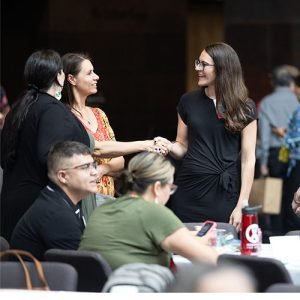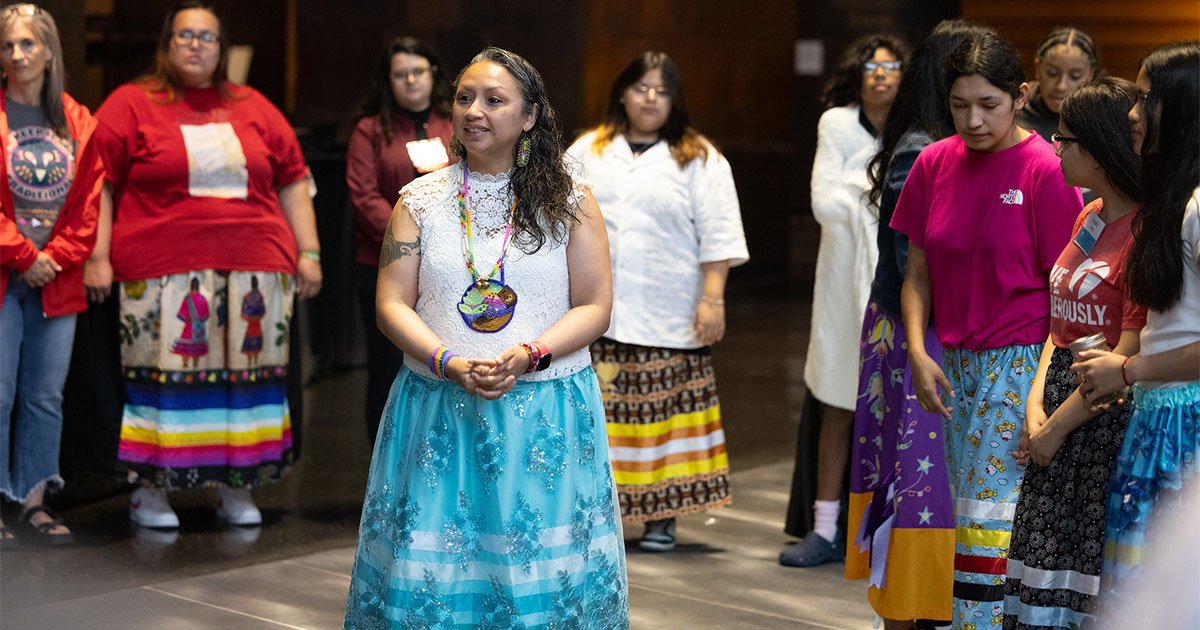University of Minnesota School of Public Health (SPH) Associate Professor Dana Carroll received a new grant to assess the effectiveness of a smoking-cessation program aimed at curbing use of commercial tobacco products among American Indian people. In collaboration with the American Indian Cancer Foundation (AICAF), Carroll will lead a team comprised of Tribal community members, clinics serving Native populations, and others to examine a culturally-tailored digital smoking cessation resource called SmokefreeNative, a text-based smoking-cessation resource Carroll helped develop.
In Minnesota and across the country, American Indian people experience a high smoking prevalence. Despite the high rates of smoking—which has been attributed in part to systemic racism and historic oppression—Native American people are often left out of commercial tobacco-related research. In an effort to encourage smoking-cessation efforts among American Indians, Carroll and the AICAF along with the U.S. government and the Indian Health Services developed SmokeFreeNative, a culturally tailored text messaging program to help American Indians quit smoking. SmokeFreeNative was recognized last year as part of the Biden Administration’s efforts to reach the goal of reducing cancer death rates by 50% in the next 25 years.

The new grant from the National Cancer Institute builds on this work and continues Carroll’s efforts to work in collaboration with community partners to address Native American smoking prevalence. In partnership with Wyatt Pickner, a member of the Hunkpati Dakota Tribe and research lead at AICAF, Carroll will engage community members and key stakeholders in a comprehensive analysis of the effectiveness of SmokeFreeNative. This grant also includes two additional recruitment sites, one at Oklahoma State University (led by Dr. Ashley Cole [Citizen Potawatomi Nation of Oklahoma]) and one at University of Southern California (led by Dr. Claradina Soto [Navajo/Jemez Pueblo]).
“We know that the most effective research and policy recommendations are those that originate in community, that arise out of a community-driven process,” says Carroll. “By including the voices and perspectives of Native communities, this project will focus on the unique factors that may be driving smoking rates among Native people, and how this smoking cessation program can best advance the goal of reducing Native smoking rates.”
In addition to support from the Native American Community Clinic in Minneapolis and a tribal nation in Wisconsin, the project will receive input from a community advisory board composed of tribal and American Indian-serving clinics that will guide research efforts and ensure the viewpoints of American Indians are centered. The grant also includes funding to support a Native research coordinator at AICAF.
Results of the study will be completed by 2029. Carroll said the results will be shared via her typical two-pronged approach: community-facing infographics and scientific journals.

